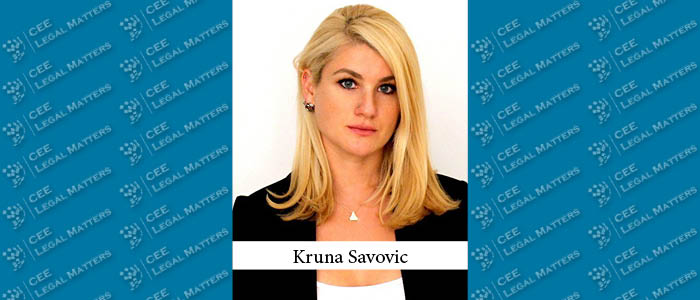There are limited ways to increase control over the management board of Polish limited liability companies because it is the company's management body that is responsible for its affairs and representation.
However, certain mechanisms can be introduced to the Articles of Association and agreements with management board members, including, in principle, the introduction of: (i) value-based rules of representation; (ii) shareholders' consent for specific actions; (iii) management board regulations and division of duties between its members; and (iv) a Supervisory Board and requirement of its consent for specific actions. This article briefly discusses each of these options and their applicability in practice.
1. Scope of the Right to Represent the LLC
In Poland limited liability companies (LLCs) are represented by their management boards (MBs) in accordance with the rules of representation set out in their Articles of Association (AoA) and included in the commercial register, which is publicly available online.
MB members, acting jointly, can also grant a commercial proxy (prokura) – a broad power of attorney to represent the company – to other persons. Commercial proxies are also listed in the commercial register.
MB members acting in accordance with the LLC's rules of representation can also grant powers of attorney to other persons to take: (i) specific actions; (ii) specific types of actions; or (iii) all actions within the ordinary course of the LLC's business. Such attorneys-in-fact are not identified in the commercial register.
Statutory Limitations of the Right to Represent the LLC
Under Polish law, the MB is authorized to represent the LLC in all matters, but it requires shareholder meeting consent to:
- transfer and lease an enterprise or its organized part, or establish a limited property right (e.g., a mortgage) thereon;
- acquire and transfer real estate, perpetual usufruct, or share in real estate, unless the company's AoA provide otherwise;
- refund additional capital payments made by the shareholders;
- conclude an agreement between a dominant company and its subsidiary on the former’s management of the latter;
- distribute the LLC's profit or cover its losses;
- approve the MB’s report on the operations of the company, the financial report for the previous financial year, and the granting of approval for the performance of duties by MB members; and
- dispose of a right or take on an obligation to provide performance of a value exceeding twice the value of the LLC's share capital, unless the company's AoA provide otherwise.
Lack of shareholder consent to any of the actions renders them invalid. Consent can also be granted after a specific action has been taken.
Additionally, a prior resolution of the MB is required if one or more members of the MB raise an objection to a decision by another MB member before it is made, or if the matter falls outside the ordinary affairs of the company. Actions taken without this resolution will be valid, but the MB member taking the action may be held liable for doing so without the authorization of the other members.
Moreover, according to Polish law the MB member should not engage in a competitive business or participate in a competing company as a partner or as a member of a governing body of a competing company without the original company's consent. This consent shall be given by the shareholders or the Supervisory Board (SB) (depending on who appoints the MB), unless the AoA provide otherwise.
2. How to Increase Control Over MB Members
As a rule, MB members are appointed and dismissed by the shareholders. The AoA can set out different rules or introduce certain requirements which should be met by the MB members.
Rules of Representation
MB members' right to represent an LLC with third parties cannot be limited, but the LLC’s AoA can set out the rules of representation – i.e., the way in which MB members can represent the company. The rules of representation can require, for instance, that the LLC must be represented by two MB members acting jointly. In such case, the shareholders can appoint a trusted person as one of the MB members to effectively increase the control over the company. Since the LLC's rules of representation are publically available, they are effective in respect of third parties and actions taken in breach of such rules are invalid. The biggest disadvantage of such solution is that both MB members' signatures would be required for even minor agreements and statements signed on behalf of the company.
A more flexible way to increase the control over an LLC is to introduce the value-based rules of representation by having the AoA set out that the LLC may be represented by individual MB members taking on obligations or disposing of rights where the value is below a certain value but that it must be represented by two (or more) MB members acting jointly to take on obligations or dispose of rights of a value above that threshold. Such value-based rules of representation give flexibility because each MB member can act individually in minor cases, whereas decisions on more important matters require counter-signature. The value-based rules of representation should be drafted carefully (e.g., by indicating how to calculate the value of continuous obligations or the value of agreements in foreign currencies), so that there is no doubt if a given matter exceeds the threshold. Actions taken in breach of the rules of representation are invalid. Some of the registry courts question the admissibility of such rules of representation, but in most cases they are accepted.
Shareholder Consent
Another way to increase control over the LLC is to set out an obligation to obtain prior shareholder consent for the MB to take certain actions in the AoA. Such restrictions are effective only internally only – i.e., actions taken in breach of such limitations are valid, but the LLC has a claim towards the MB members for any damage caused by the breach. It is also possible to introduce such internal limitations in the employment agreements with the MB members. The recommended method to introduce such internal limitations is to introduce them both in the AoA and in the contracts with the MB members.
MB Regulations
Another solution to consider is to create rules (both regulations and by-laws) for the MB. Depending on the AoA provisions, such rules can be adopted by the MB itself, by the shareholders, or by the SB. These rules can split the rights and obligations of the MB members and divide their responsibilities. However, each MB member still has the right to represent the company, so MB regulations are only effective internally.
Supervisory Board
Finally, the shareholders may decide to appoint a SB, which is a corporate body consisting of at least three persons exercising permanent supervision over all areas of the LLC's activities. A SB does not have the right to give any binding instructions to MB members with respect to the management of the company's affairs. However, the AoA can require that the SB's consent be obtained before the MB takes certain actions. Lack of such consent does not make the actions invalid but the LLC can have claims towards the MB members for any damage caused by acting without its consent. Also, the AoA can grant the SB the right to suspend any or all MB members from their duties for significant reasons. The SB members have also access to all of the LLCs' documents and are, in particular, obliged to review the financial documents.
In practice, SBs are often appointed in LLCs owned by shareholders from different capital groups who do not want to supervise the LLCs directly. Although it is uncommon, it is nevertheless possible to appoint an SB in an LLC with only one shareholder. SBs must be created in LLCs whose share capitals exceed PLN 500,000 and where there are more than twenty-five shareholders.
3. Control Over Commercial Proxies
Commercial proxies can represent LLCs towards third parties but, unlike MB members, they are not authorized to run LLCs’ internal matters (such as adopting the LLC's strategic plan, creating remuneration policy, etc.). Like MB members, commercial proxies' right to represent the LLC to third parties cannot be limited, and they can be authorized to act in one of the following ways: (i) individually; (ii) jointly with another commercial proxy; (iii) jointly with another commercial proxy or an MB member; or (iv) jointly with an MB member.
Agreements concluded by commercial proxies in breach of the applicable rule of representation are invalid, unless approved by the LLC.
Unlike with MBs, value-based rules of representation effective towards third parties cannot be applied to commercial proxies. The AoA or agreements with commercial proxies can set out additional limitations (e.g., the requirement for shareholder consent for certain actions). However, as with MB members, such limitations are only effective internally, providing the LLC with claims for damages caused by actions made in the absence of required consent.
Two commercial proxies acting jointly (i.e., without an MB member) cannot: (i) transfer an enterprise; (ii) grant consent to a third party to temporarily use an enterprise; or (iii) transfer or encumber real property. Such actions of commercial proxies require a separate power of attorney granted by the MB in order to be valid.
By Katarzyna Terlecka, Managing Partner, and Krzysztof Lesniak, Attorney at Law, Schoenherr Poland





























